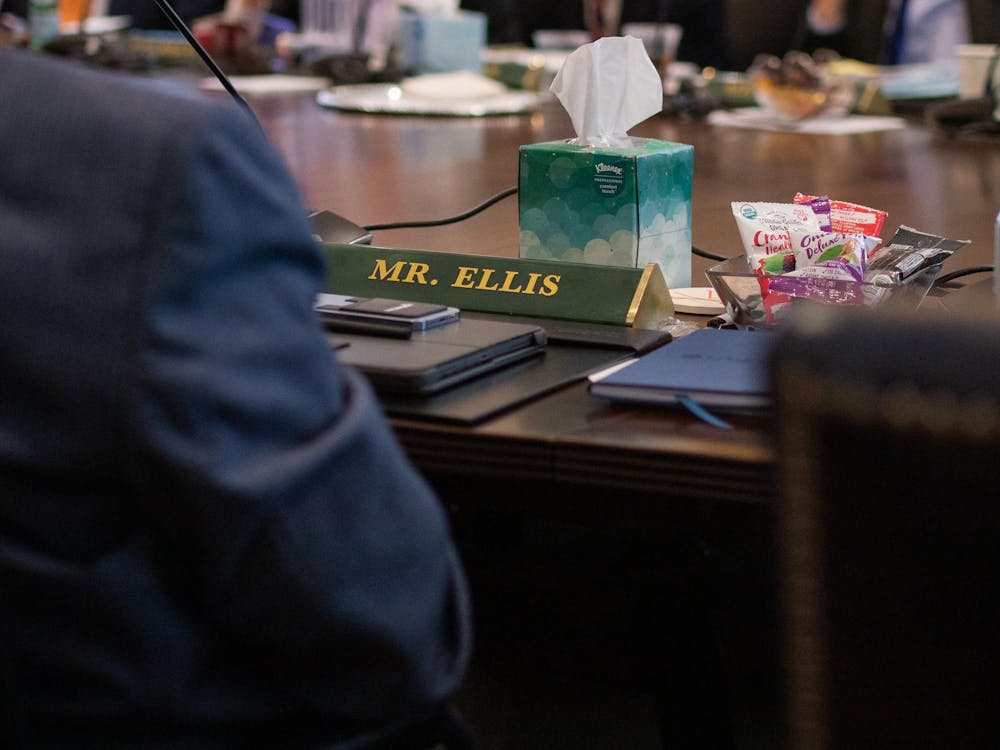Lea en español
Sisters Project Peru was founded in the summer of 2020 by rising second-year Architecture student Maya Koehn-Wu and her younger sister, Natalie Koehn-Wu, a freshman at Maggie Walker Governor’s School in Richmond. Their initiative aims to provide healthcare access to the community of Huacahuasi, a rural village in the Sacred Valley of Peru, by raising funds and awareness of the issues that the village faces.
Natalie and Maya became inspired to start the project after their first visit to Huacahuasi two years ago. The Huacahuasi community is situated high up in the Andes mountains where the people mainly speak the native language, Quechua. The community, consisting of about 500 people, is especially welcoming to visitors and inspires others through their rich culture.
“We were highly inspired by the culture there,” Natalie said. “We witnessed and experienced the village life of Huacahuasi in the Sacred Valley and learned about their need for better healthcare in the area.”
MedLife reports that one-third of Peru’s population does not have access to basic healthcare. In rural parts of the country like Huacahuasi, where poverty is the most prevalent, healthcare is even more inaccessible. In the last decade, the Peruvian government has implemented widespread reforms working to alleviate healthcare problems.
These reforms have worked to improve health conditions and taken major steps to create a universal healthcare system. As a result, more than 80 percent of the 31 million people have some access to the country's healthcare system. Additionally, malnutrition rates have dropped from 29 percent in 2010 to 13.1 percent in 2013.
While these reforms show significant promise for prominent health care systems in rural Peruvian communities, as Natalie and Maya witnessed, they still have a long way to go.
“Many of the inhabitants of the village had to walk hours in order to reach medical help,” Maya said. “When my sister and I realized the urgent need for assistance, we partnered with the community and began to work on how to create an efficient and useful healthcare system.”
Sisters Project Peru works to raise money and fund a proper health clinic in the Huacahuasi community. Maya recently hosted a bingo board campaign through the campaign’s Instagram page, where they received donations from followers, including some University community members. Meanwhile, Natalie hosted a soccer fundraiser at her high school May 24 to raise money.
The sisters believe establishing a healthcare clinic is critical for the Huacahuasi community, yet they are even more concerned with improving access to the public healthcare system.
“Building a clinic is important — however, working with the public healthcare system is even more important,” the sisters said in their blog, which provides updates on their goals.
Maya and Natalie hope to work with the Peruvian Ministry of Health to convince them that Huacahuasi needs a clinic and a full-time doctor, both funded by the public health care system.
Sisters Project Peru has been in contact with Dr. Anibal Nieto, head of the health ministry in Cusco, Peru.
“Dr. Nieto has stated that he is all for building a clinic — however, information about Haucahuasi must be updated,” Natalie and Maya said in their first blog post.
With that, Sisters Project Peru conducted a community needs assessment in Huacahuasi in order to prove to the ministry how dire the need for proper health care is. The project did this by hiring Haucahuasi people to conduct a survey of community members to collect data such as population numbers, number of people who need treatment and number of elderly people in the community. The survey results have yet to be processed.
The project also continues to send members of their group to Peru every few months in order to build a connection with the Haucahausi people. Natalie has a team at her high school working on fundraising efforts, whereas at the University, Natalie is currently working with two other students. Outside of school, the sisters are in contact with representatives of the various non-governmental organizations they are working with, which include FNE International — an organization that helps improve housing, education and health in developing communities — and Asoc. Wiñapaq and Yanapana Peru — two Peruvian-based NGOs.
Sisters Project Peru spreads its initiative to other communities through its Instagram page and website.
“This semester we have really aimed to spread the word about our initiative and are working to begin our outreach into various school communities,” Maya said.
The sisters’ team wants to expand its initiative amongst the University community, getting students involved in upcoming fundraisers and projects.
“We have marketed to students around grounds by reaching out to related clubs and organizations,” Natalie Kim, marketing chair for Sisters Project Peru and first-year College student said.
Sisters Project Peru will continue to tap into different groups within the University community to promote their initiative. Over the summer, the group plans to work on grant writing and creating a more specific fundraising initiative.
“U.Va. is made up of a community of students, faculty and administration that all care deeply for empowering and important causes,” Kim said.
With the inspiration of two sisters who saw great potential for the health and safety of the Haucacausi community, Sisters Project Peru continues to fight against healthcare injustices in Peru. The project’s fundraising journey has only just begun, and members are calling upon University and local community members to join their initiative and donate to their cause. Currently, the project has raised $1,024 from eight donors, but the money from the University still has yet to be transferred.
“The money is going to a great cause and people who really need it,” Natalie said.







